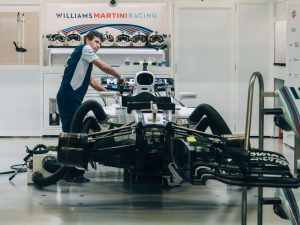Exposing the Top Car Maintenance Myths
Every car owner has heard of some maintenance myths. From changing the oil every 3k miles to morning refueling saves gas, we’ve all heard these nonsensical beliefs that some drivers think they should do. Most are just made by maintenance shops that aim to milk more money from car owners.
Here, we debunked some maintenance myths and revealed the real score on each one:
Myth No. 1. You’re supposed to change oil every 3,000 miles
It’s evident that this one is a ploy of most oil companies who want to have a steady flow of clients. Change oil should be based on what your owner’s manual dictates.
Typically, modern cars can run for 5,000 to 7,500 miles before needing to change its oil. Although some may require a change-oil below 5,000 miles, it only happens when a part of the engine is faulty.
If you follow this 3,000-mile mark, you’re just pouring out money to oil companies and auto shops.
Myth No. 2. Refueling in the morning allows you to get more gas
Gasoline indeed expands when heated. This leads drivers to think that refueling in the afternoon or hotter periods of the day will make them lose gas than in the morning.
But here’s the truth: gasoline is stored in an insulated, underground chamber. It’s not exposed to heat so you’ll get the same amount of gas no matter what time of day you refuel.
Anyway, there’s no harm to refueling in the morning, especially if you’re up for a long drive.
Myth No. 3. When your tire got busted by a nail, you need a replacement right away
Although a nail or shard of glass can puncture a hole on your tires, it doesn’t mean that you need to purchase a replacement right away. Even low-end auto shops can fix this with a patch.
So don’t waste your money on repeatedly buying new tires whenever you run over a nail.
Myth No. 4. No weird noises, no problem
Cheapskates usually use this as an excuse to evade regular maintenance checks. Just because your car doesn’t produce loud noises doesn’t mean nothing’s wrong with it. Problems with the wiring don’t usually make a sound. It will just surprise you in the middle of the road – take your brakes, for example.
Myth No. 5. Premium fuel will make your car perform better
Regular gasoline works fine on most vehicles as long as the performance engine doesn’t run hotter than most. Unless your car is expensive and the owner’s manual dictates a specific fuel type, there’s no magic trick in using premium fuel. Your vehicle will have the same mileage and horsepower.
Myth No. 6. Your car’s engine should be warm before you go for a drive
Driving a vehicle isn’t like exercising; it doesn’t need to warm up. Everything will work fine once you turn the key. During winter, warming up your car helps heat the interior of your vehicle. Other than that, you’re just wasting gas while your car stays idle on its position.

